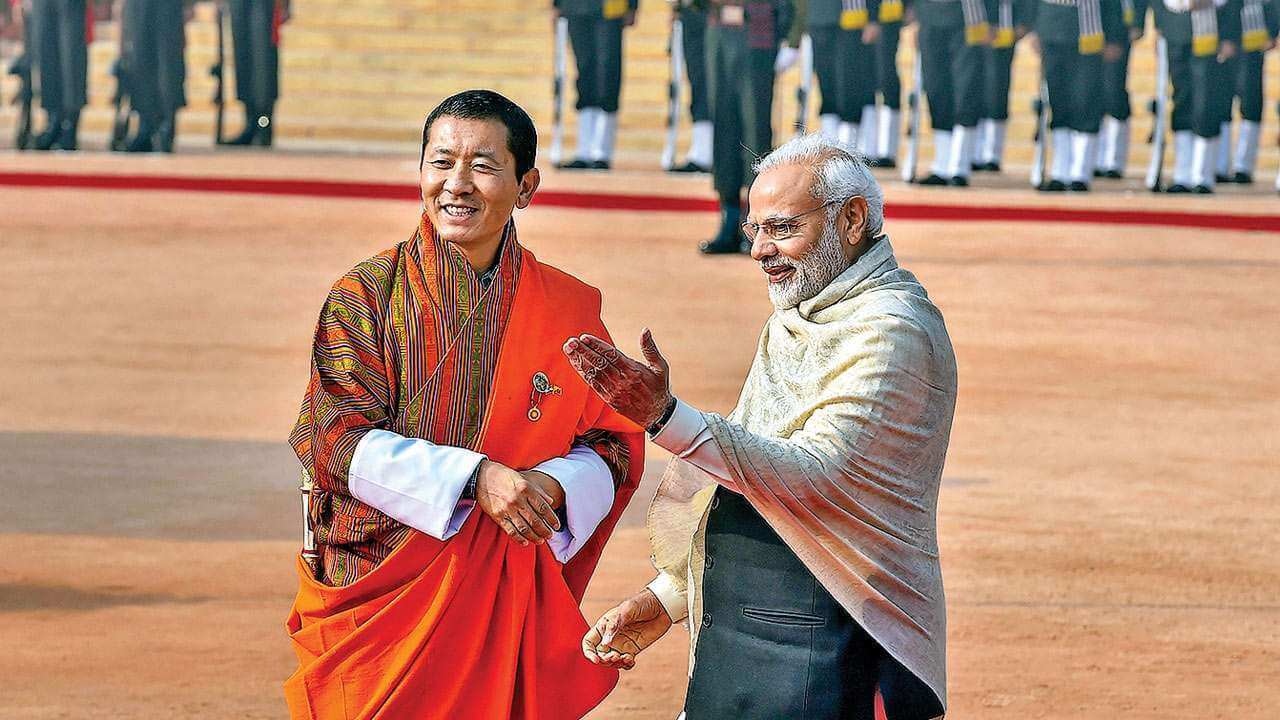Starting Tuesday, Bhutan Prime Minister Lotay Tshering announced a complete lockdown across the country and suggested that it could be extended to a maximum of three weeks. Previously, the tourism-dependent country imposed a ban on tourists, after an American visitor tested positive in March. Following this, the government mandated a three-week quarantine for every individual entering the country from abroad. The Bhutanese officials extensively monitored and screened individuals arriving in the kingdom from every entry point, which Bhutan believes to be the reason for its success in containing the spread of COVID-19. However, this is the first time a nationwide lockdown was imposed in the country.
The Himalayan kingdom has reported merely 113 cases of COVID-19, the lowest in South Asia. Currently, the Bhutanese officials say that the country has about 16 active cases. However, this decision was made after a 27-year old woman who was discharged after testing negative following her quarantine after returning from Kuwait tested positive on Monday. She has allegedly come in close contact with over 71 people. The lockdown has severely impacted Bhutan’s trade, specifically with India, as the border between West Bengal and Bhutan was closed down. Bhutan shares a border with three districts in West Bengal—namely, Alipurduar, Jalpaiguri, and Kalimpong.
India is a crucial ally of Bhutan in the region. The countries are joint at the hip through their collaboration on foreign policy and defence. For instance, The Indian Military Team trains the Royal Bhutan Army and the Royal Bodyguard of Bhutan. However, trade continues to be the strongest thread holding the two countries together. India-Bhutan Trade and Transit Agreement of 1972 governs Bhutan’s trade with India. This agreement was further renewed in 2016. The total value of goods traded between India and Bhutan amounts to about Rs. 9,000 crore. Indian products account for 84% of Bhutan’s imports, while 78% of goods exported from Bhutan are directed towards Indian markets. Further, goods worth Rs. 1,500 crore from several other countries, including Bangladesh, also come to Bhutan through West Bengal. Bhutan exports “traditional dresses and ornaments, honey, ginger and milk products” to India, and imports “vegetables, food grain, medicines, textiles and tea” from India. However, Bhutan’s ministry of external affairs has reassured that the government was in possession of enough supply of essential items such as salt, toiletries, rice, and sugar, to sustain itself without any imports for six months.
This friendship, however, put Bhutan in a sticky spot with China earlier in July. In a move that is believed to indicate China’s anger over the Indo-Bhutanese friendly relations, China expressed its opposition to funding a project for the Sakteng wildlife sanctuary in Eastern Bhutan, when China stated its opposition to funding a project for the sanctuary, claiming for the first time that it was “disputed” territory. In response, Aparna Subramani, the World Bank official representing Bhutan, as well as India, Bangladesh, Maldives, and Sri Lanka, said, “Bhutan totally rejects the claim made by the Council Member of China. Sakteng Wildlife Sanctuary is an integral and sovereign territory of Bhutan and at no point during the boundary discussions between Bhutan and China has it featured as a disputed area.” Consequently, Bhutan’s foreign ministry sent China a demarche, protesting Beijing’s claims and prompting the Chinese foreign ministry to double down on its position in the alleged boundary dispute.
Also Read: Following Thimpu’s Demarche, China Reiterates Claim Over Sakteng Sanctuary in Bhutan

